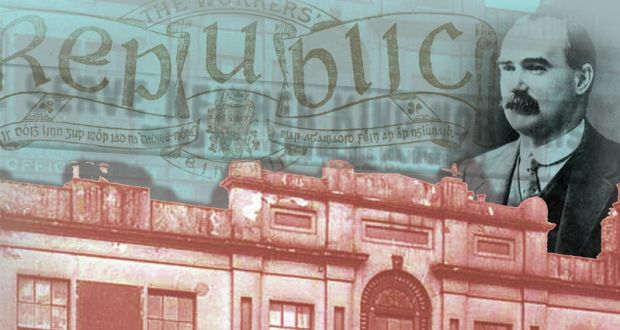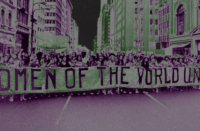The trade union movement, north and south, is at a significant crossroads where it can choose to struggle, fight, grow and raise the expectations and consciousness of our class and with our class, or it can choose to be further incorporated into the structures of Imperialism. With changing demographics and calls for Irish unity growing, the “Union” is also at a crossroads: unions need to enter this debate.
Anti-worker legislation on both sides of the border needs to be tackled to build workers’ power. Its sole purpose is to control and disarm workers. The British government “2016 Trade Union Act” was not introduced by the Stormont assembly. It has been suggested that this was toavoid upsetting the Union constituency upon which both power blocs draw. If this is case, why was Gerry Carroll’s “Trade Union Freedom Bill” voted down in Stormont when it had widespread trade union support?
With the return of the assembly, the Finance Minister has allocated £685 million for public sector pay, to bring it in line with workers in Britain. With an emboldened workforce, pay parity with Britain may not be enough: junior doctors went on strike in early March after the return of Stormont. There are those who opine that we should only compare wages on an East/West basis, as to compare wages on a North/South basis is condescending and putting nationality before class. However, it is a more relevant question for a junior doctor in the North to compare their starting pay of £26,000 to a junior doctor’s pay of £41,134 ten miles down the road over the border than to the £32,000 paid to doctors hundreds of miles away in England. It is not only junior doctors’ pay, it is right across the board: for example, a newly qualified teacher in the North earns £24,137 compared to £33,735 south of the border, or £30,000 in England, but we shouldn’t say this, as this is a “wrap me in a green flag” argument made by socialist republicans.
It’s a red flag argument. It brings to mind how in 1919 the struggle for better wages overcame sectarian divisions rife in the area during the Monaghan Soviet when a mixed workforce on the border marched united behind a red banner with the slogan:
“The wages of sin is Hell, The wages in Monaghan are Hellish.”
The Monaghan Soviet is no more but for doctors’ pay, the wages in the North are still hellish and should be a red flag and a class issue: nothing to do with nationalism but everything to do with the reality of partition. We can do much better as a class if we unite our struggles north and south. We are not in the business of arguing which has the better form of capitalism, the North or the South, but the economic case for the “Union” lies in tatters.
Itis essential to have not just a clear end goal but also a medium-term strategy and tactics. We need to bring forward demands and develop strategies that put working class interests to the fore. We need to educate, agitate and organize to build for unity, peace and socialism, through working class unity and effort. Raise demands and develop struggles on an all-Ireland basis to turn the aspiration for a united Ireland into the concrete forms of social and political campaigns. Not mentioning Irish unity is not a strategy to achieving our end goal. We must convince the masses that the reunification of this country is what is best for our people. There will be no united working class in a divided country. The trade union movement should be to the forefront of that struggle. Irish unity without class struggle is a cabinet reshuffle.
We must turn the fight for short-term, everyday demands into transformative demands that prepare the ground for a united Ireland:
- An all-Ireland programme to end homelessness and to build state-funded public housing.
- A fully funded, all-Ireland free Public Health Service for all, from the cradle to the grave.
- The introduction of a fair Employment Act to protect and empower workers.
- An employment and economic program that addresses the needs of the whole country.
- A clear all-Ireland program for an environmentally sustainable economy.
- An all-Ireland declaration of neutrality.
Initially these could be done on an all-Ireland basis, in two identical legislative parts for both jurisdictions, in preparation for unity.
“Northern Ireland” was established to maintain and sustain a Unionist majority in this part of Ireland. The brutality, savagery and injustice of that British colonial policy suffered by our people is within living memory. With the change in demographics, peace, education, and the continued failure of the six counties as a political entity the people who live here recognise that it is the beginning of the end of “the Union”.
Colonialism was wrong, is wrong and always will be wrong.
“In the name of a superior civilisation the British Empire crushed the development of native genius, and in the name of superior capitalist development it destroyed the native industries of a sixth of the human race.”
James Connolly
Trade unionism can continue to tackle the symptoms to bring about a nicer form of capitalism. But this is not in the best interests of our class.
As Wolfe Tone set out, our class will be victorious:
“only when we unite the whole people of Ireland, to abolish the memory of all past dissension and to substitute the common name of Irishman in place of the denominations of Protestant, Catholic and Dissenter.”






